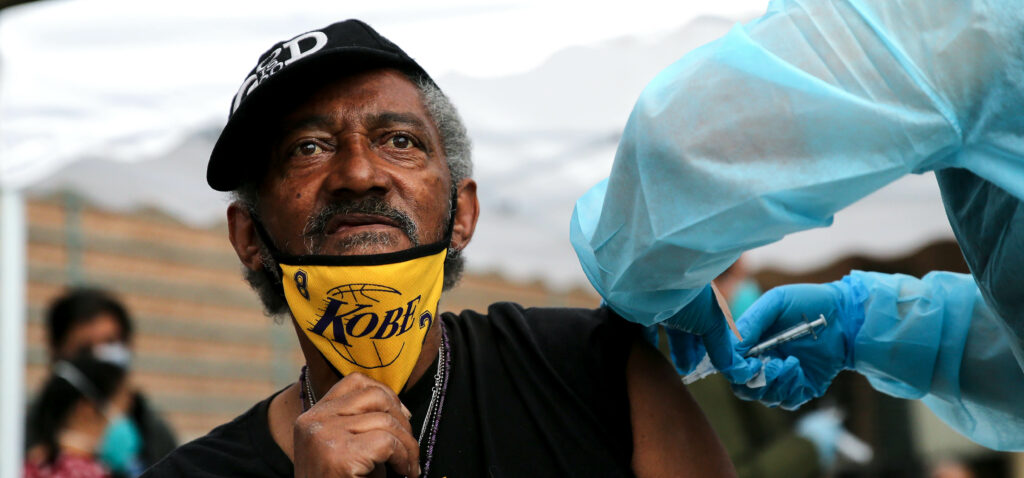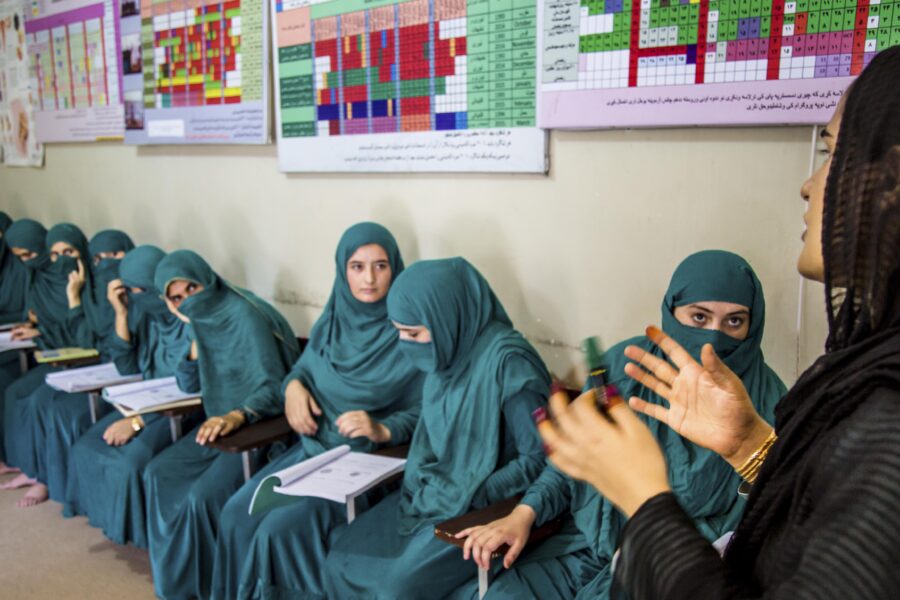COVID-19: overcoming health disparities and building universal healthcare
The pandemic has cruelly exposed social inequities and set back progress on the SDGs. But it also gives us critical insights on what must change in our global mission to build a more just, secure, and sustainable future
Health — Global

The COVID-19 pandemic has resulted in immense suffering throughout the world, with over 171 million cases and 3.5 million COVID-19-related deaths reported by 1 June 2021. In many parts of the world, the pandemic is unfolding against a backdrop of overburdened and maldistributed health systems.
COVID-19 has highlighted the importance of resilient health systems that have the capacity for effective surveillance, laboratory diagnostics, contact tracing, and hospitals with adequate beds for patients needing oxygen. A particular challenge was providing high levels of hospital care to thousands of patients with coronavirus, while continuing to treat other communicable, non-communicable and neglected diseases.
A key lesson in addressing the pandemic has been the dire need for ensuring access to care. Failure to access medical care makes COVID-19 a deadly disease. Coronavirus has put a spotlight on the disparities in access, which has translated to higher levels of preventable death. It is this fault line of how age, race, and wealth impact access to health that has highlighted a key obstacle in the quest to meet the 13 targets and focus on the 28 indicators of SDG3 Good Health and Well-being.
A pandemic of inequities
The pandemic has exacerbated several disparities within society. Globally, inequitable access to healthcare has a long history, usually on the basis of affordability. SARS-CoV-2 disproportionally affects older individuals who are at greater risk of requiring hospitalization or dying if diagnosed, with about 80% of deaths being among those 65 years or older. Despite being the most vulnerable, older people were often denied access to beds and ventilators, based on decisions made around the use of scarce medical resources. Mortality rates in some care homes have been alarming, and several instances of neglect and abuse of the elderly in these facilities throughout the world have been exposed.
The pandemic has also brought social and racial injustice and inequity to the forefront of public health. COVID-19 unequally affects many racial and ethnic minority groups, placing them at increased risk of getting sick and dying from the disease. These racial disparities are evident in several countries and have been extensively documented in the US, where coronavirus has disproportionately affected racial (black or African American, American Indian, or Alaska Native people) and ethnic minority (Hispanic or Latino) groups. These groups are 2.9 to 3.5 times more likely to be hospitalized with COVID-19 and 1.9 to 2.4 times more likely to die from COVID-19 than white people. In South Africa, COVID-19 mortality in blacks was almost twice the rate in whites. Racial health disparities such as these are frequently aggravated by poverty, which leads to inequitable access to emergency medical care in disadvantaged communities.
COVID-19 has also exacerbated the long-standing inequities between rich and poor countries with regards to access to prevention and treatment. During the early stages of the pandemic, several countries experienced shortages of personal protective equipment (PPE), polymerase chain reaction (PCR) diagnostic kits to identify those who are infected, and cell phone technologies for contact tracing. In April 2020, South Africa was unable to secure adequate supplies of SARS-CoV-2 diagnostic test kits, despite orders being placed and paid for well in advance. Most poor countries were last in line for these precious resources, which were in short supply and high demand across the globe. Under this pressure, some innovative solutions were created, such as the African Union’s African Medical Supplies Platform. The platform leveraged the continent’s collective buying power to become a major purchaser of these essential goods and improve Africa’s access to diagnostic kits.
Most concerning has been the inequitable distribution of vaccines. Despite the remarkable achievement of rapidly developing several highly effective SARS-CoV-2 vaccines within a year of the new virus being identified, many poorer countries have fallen behind in the race to vaccinate their populations. The unequal distribution of vaccines is partly due to limited supplies, but is also due to vaccine nationalism, whereby some countries, particularly those with more resources, adopt a “me first” approach. They have secured more doses than their populations need because they are able to pay higher prices and jump the queue. By 1 June 2021, two thirds of the 1.8 billion vaccine doses that have been administered globally have been given in just six countries (China, the US, India, the UK, Brazil, and Russia), while some countries are only just starting their SARS-CoV-2 vaccination programs.
The world is facing a new unethical and immoral situation where young, low-risk people are being vaccinated in one country while those at highest risk, such as healthcare workers and the elderly, have not been vaccinated in other countries. This unconscionable situation is rapidly growing. Israel, which is recovering from its third wave, is vaccinating young, low-risk individuals while many of its neighboring countries have not secured sufficient vaccines for their healthcare workers. In April, all states in the US expanded vaccine availability to young, low-risk people, while at least 10 countries in Africa had not yet secured doses to start vaccinating high-risk healthcare workers.
While COVID-19 is a calamity, it is an opportunity to bolster progress towards universal healthcare
COVID-19 has taken the world off track on its progress towards achieving some of the SDG targets. But it is also an opportunity to draw on the lessons learned during this pandemic to be better prepared for future threats and to achieve a better, more sustainable future.
The reliance of poor countries on others for the development of vaccines and diagnostics highlights the dire need for these countries to increase local investments in science and technology to build self-sufficiency and enhance their capacity to control pandemics.
An important lesson is that preparation and planning fosters health system resilience and saves lives. In general, countries that were able to rapidly implement testing, contact tracing, and quarantining (such as New Zealand) were better able to cope and contain COVID-19. Some countries (such as Thailand) with experience in dealing with similar respiratory epidemics such as MERS and SARS were also better able to slow the spread of the epidemic. Countries like Rwanda, Ghana, and South Africa creatively pivoted testing infrastructure that had been established over many decades to address Ebola, HIV, and tuberculosis to rapidly scale up SARS-CoV-2 testing. Several African countries also utilized their community health worker programs to carry out widespread screening and contact tracing in the community.
Perhaps the most important lesson has been a reminder of the importance of our humanity and mutual interdependence; each person’s actions influence not only their own risk but also the risks experienced by many others, such as their families, work colleagues, and people they share transport with. Similarly, the spread of SARS-CoV-2 in one part of the world will almost certainly affect other parts of the world. Defeating the pandemic requires global control, which can only be achieved through solidarity among people, communities, and nations.
To be better prepared for future pandemics, the world will need to draw on the lessons learned during this pandemic. Achieving universal healthcare will need to address fault lines in society, foster the importance of collective action, and build solidarity.





